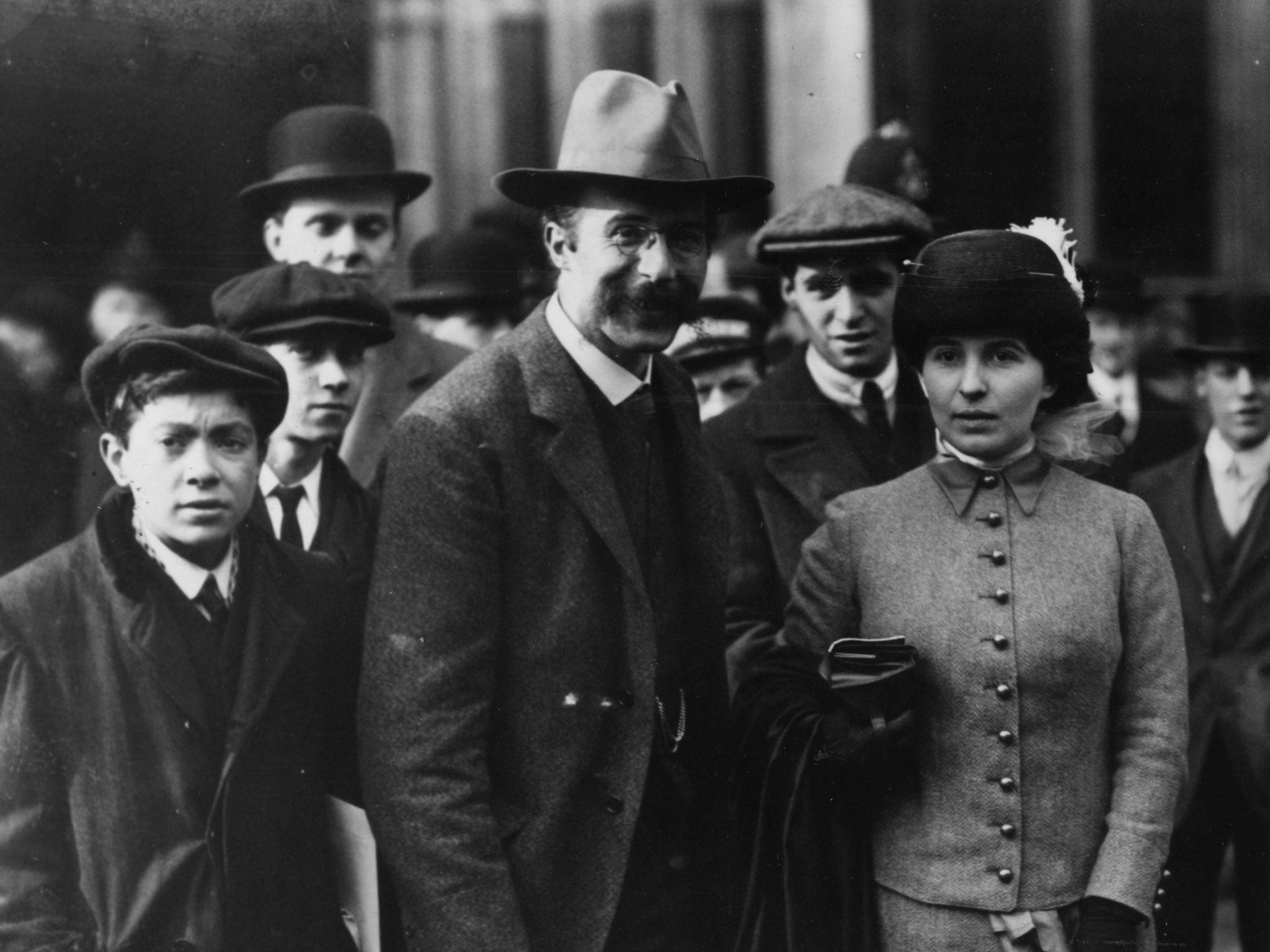Swallows and Amazons author Arthur Ransome was suspected Russian spy, MI5 secret files reveal
The children's author was described as 'an ardent Bolshevik' in the documents released by The National Archives

Your support helps us to tell the story
From reproductive rights to climate change to Big Tech, The Independent is on the ground when the story is developing. Whether it's investigating the financials of Elon Musk's pro-Trump PAC or producing our latest documentary, 'The A Word', which shines a light on the American women fighting for reproductive rights, we know how important it is to parse out the facts from the messaging.
At such a critical moment in US history, we need reporters on the ground. Your donation allows us to keep sending journalists to speak to both sides of the story.
The Independent is trusted by Americans across the entire political spectrum. And unlike many other quality news outlets, we choose not to lock Americans out of our reporting and analysis with paywalls. We believe quality journalism should be available to everyone, paid for by those who can afford it.
Your support makes all the difference.He is remembered as the author of the classic children’s series Swallows and Amazons, which tells of childhood adventures during endless summer days upon the waters of the Lake District.
But away from the idyllic world of his writing, Arthur Ransome was kept on file by MI5 as a suspected Russian spy.
His name appears in top secret MI5 files on people and organisations involved in espionage during the First World War, which on Thursday became available online for the first time.
More than 150 files created during the period of the Great War, but often extending beyond it, have been digitised by The National Archives, and include interrogation reports, letters, postcards and photos relating to individuals and groups under surveillance.
Among those detailed is Ransome, who first caught the attention of the British intelligence services in 1917, while working as a journalist for the Daily News in Russia, where he married Trotsky’s former secretary, Evgenia Shelepin.
His job saw him witness first-hand the October Revolution and also brought him into close contact with many prominent Bolshevik figures.
MI5 followed Ransome’s movements as he produced propaganda for the Bolsheviks and travelled between Moscow, Stockholm and the UK.
A document covering the period 1918-1919 describes Ransome as “a keen supporter of Trotsky and… an ardent Bolshevik”. He is also said to have identified himself using the phrase “in the name of the Soviet”.
But it was continuously debated whether Ransome was actually a genuine Bolshevik, or if he was feigning his interest - either so that he could carry on his journalistic work, or to enable him to gather information for the British authorities.
Later reports state: “[Ransome is] not a Bolshevik…his association with the Bolsheviks was begun, and has been continued throughout, at the direct request of responsible British Authorities. He was first asked to get into the closest possible touch with them by Mr Lindley when he was Chargé d'Affaires.”
A second document monitors Ransome between 1918 and 1937, but in less detail. The debate about his political sympathies continued but his file was eventually closed in 1937, after MI5 agreed his name could be removed from the blacklist.
Part of a wider security service personal file series held by the National Archives, based in Kew, south-west London, Ransome's is one of the files forming part of its First World War 100 programme of digitised releases and events to mark the centenary of the war.
Other famous names featured include British nurse Edith Cavell, who saved soldiers in German-occupied Belgium, Mata Hari, the notorious female spy and entertainer, and American poet and author Ezra Pound.
They also contain intelligence reports and surveillance of organisations such as the Bolshevik Party, British Communist Party, and the Boy Scout Association, as well as files on political figures from known fascists to communists and Russian leaders such as Leon Trotsky and Vladimir Lenin.
National Archives records specialist Dr Stephen Twigge said: “The files in The National Archives' collection reveal the importance of the security service in safeguarding the nation during the First World War.
"Now that we have made the files available online as part of our First World War 100 programme, people across the globe can discover the secret history behind the war for themselves."
Additional reporting by Press Association
Join our commenting forum
Join thought-provoking conversations, follow other Independent readers and see their replies
Comments